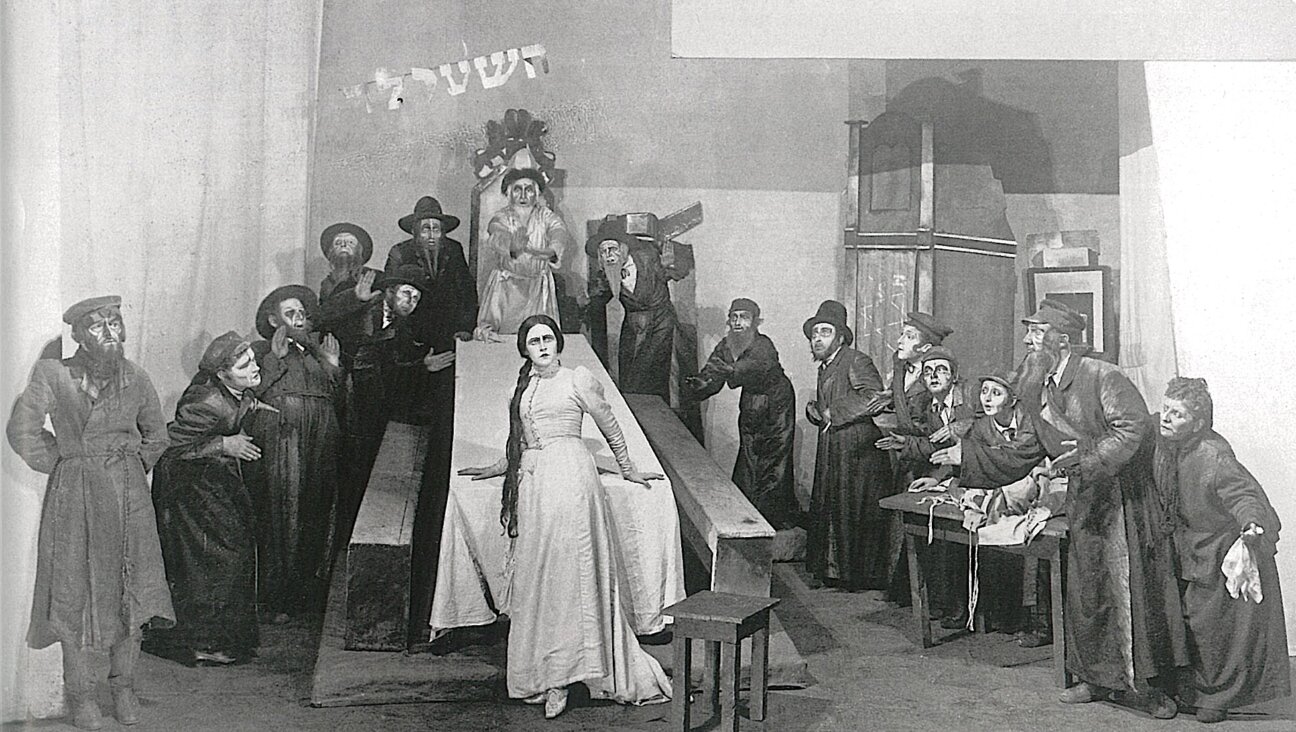YidLife Crisis comedy show, ‘Pandemish,’ streaming soon

Image by Yidlife Crisis
When people today use the term “Yiddish comedy”, they usually mean a standup act or film in English with Yiddish words tacked on for comic effect.
The online comedy web series, “YidLife Crisis”, created and starring Eli Batalion and Jamie Elman, is completely different. As many of you saw with their hilarious clip on Jewish customers in a Chinese restaurant on Christmas, the comic duo’s running dialogue is sharp, perceptive and witty, and all of it – in mame-loshn.
Although their humor may not be for everyone (it’s often irreverent), it’s a lot of fun to watch these two close friends, called Chaimie and Leizer in the series, joking, bickering and ridiculing each other, whether they’re speeding to make it home before shabbos, smoking weed in the sukkah, or ending up in a local hospital due to Chaimie’s reckless night of unprotected sex.
Now Batalion and Elman will be performing a full hour of their unique kibitzing in a show that viewers can watch at home. The event, called “Pandemish”, will be available for online viewing from January 27-31. To reserve tickets, click here.
So where did the two comics pick up their Yiddish? First of all, they were both raised in Montreal, a city known for its thriving Yiddish cultural activity. In fact, for the first half of the twentieth century, Yiddish was the third most spoken language in the city. Batalion heard Yiddish at home from his Warsaw-born grandparents and attended the Jewish People’s School and the Peretz elementary schools which both taught Yiddish.
Elman, who went to Solomon Schechter for elementary school, didn’t learn Yiddish till he started Bialik High School where it was a required course. Batalion attended Bialik too. It was there that they met and in 2014 they launched their unique Yiddish comedy show.
Knowing how hard it must be to write a script almost entirely in Yiddish, I couldn’t help asking them which dictionary they used. “The Rivka Augenfeld Online Dictionary,” Elman joked.
Ms. Augenfeld is an active member of the Montreal Jewish community and a native Yiddish speaker.
A message from our CEO & publisher Rachel Fishman Feddersen

I hope you appreciated this article. Before you go, I’d like to ask you to please support the Forward’s award-winning, nonprofit journalism during this critical time.
At a time when other newsrooms are closing or cutting back, the Forward has removed its paywall and invested additional resources to report on the ground from Israel and around the U.S. on the impact of the war, rising antisemitism and polarized discourse.
Readers like you make it all possible. Support our work by becoming a Forward Member and connect with our journalism and your community.
— Rachel Fishman Feddersen, Publisher and CEO
























